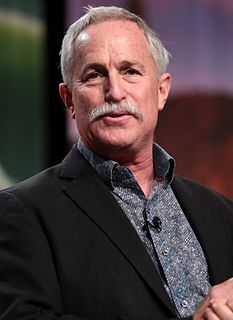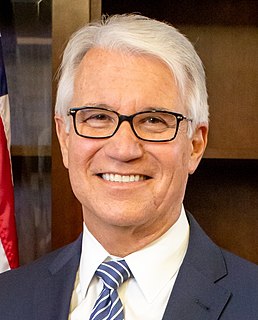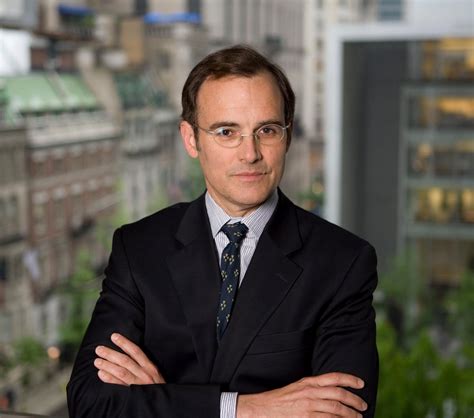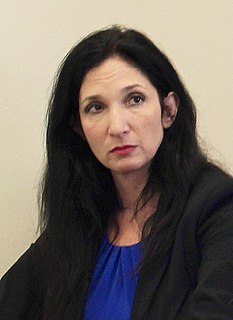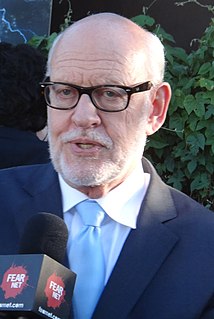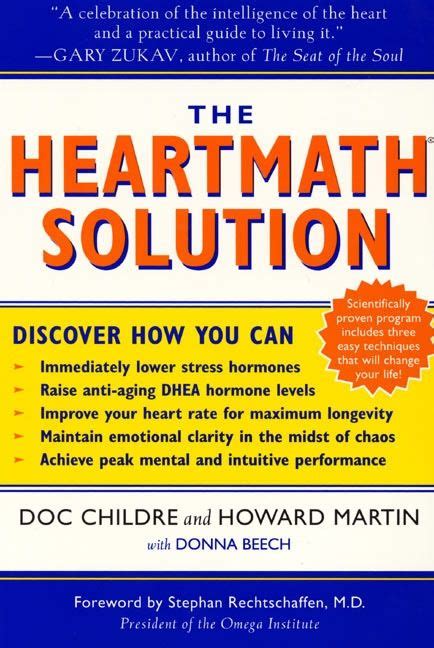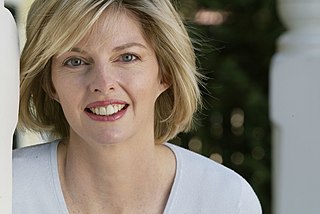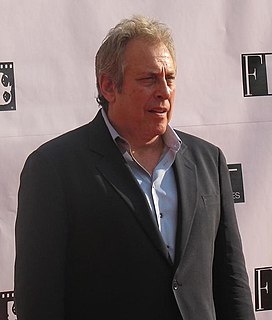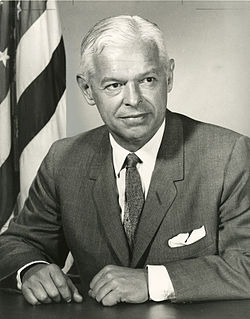Top 936 Compelling Quotes & Sayings - Page 16
Explore popular Compelling quotes.
Last updated on December 21, 2024.
Every one knows that the heavenly bodies move in certain paths in relation to each other with seeming consistency and regularity which we call [physical] law. ... No one attributes freewill or motive to the material world. Is the conduct of man or the other animals any more subject to whim or choice than the action of the planets? ... We know that man's every act is induced by motives that led or urged him here or there; that the sequence of cause and effect runs through the whole universe, and is nowhere more compelling than with man.
Short of preventing harm to the child, the standard of 'best interest of the child' is insufficient to serve as a compelling state interest overruling a parent's fundamental rights.... To suggest otherwise would be the logical equivalent to asserting that the state has the authority to break up stable families and redistribute its infant population to provide each child with the 'best family.' It is not within the province of the state to make significant decisions concerning the custody of children merely because it could make a 'better' decision.
I firmly believe that the method which sets theological theories against scientifically ascertained facts, is fatal to the current theology and injurious to the spirit of religion; and that the method which frankly recognizes the facts of life, and appreciates the spirit of the scientists whose patient and assiduous endeavor has brought those facts to light, will commend the spirit of religion to the new generation, and will benefit--not impair--theology as a science, by compelling its reconstruction.
From a business perspective, the question related to cities and sustainability is clear and compelling: can you have a healthy company in an unhealthy city? Arguably, no. Companies need healthy cities to provide reliable infrastructure, an educated and vital workforce, a vibrant economy, and a safe and secure environment to survive and thrive. Business executives have a lot to learn from cities, and a lot to contribute, and this book shows the way, chronicling the successes and the lessons learned about what it takes to make a city healthy, in every sense of the word.
Given my experience, I believe there are three compelling reasons why the death penalty should be replaced. (1) The criminal justice system makes mistakes and the possibility of executing innocent people is both inherently wrong and morally reprehensible; (2) My personal experience and crime data show the death penalty does not reduce crime; and (3) The death penalty wastes precious resources that could be best used to fight crime and solve thousands of unsolved homicides languishing in filing cabinets in understaffed police departments across the state.
[Before the Civil Rights Act of 1964], many governments in southern states forced people to segregate by race. Civil rights advocates fought to repeal these state laws, but failed. So they appealed to the federal government, which responded with the Civil Rights Act of 1964. But this federal law didn't simply repeal state laws compelling segregation. It also prohibited voluntary segregation. What had been mandatory became forbidden. Neither before nor after the Civil Rights Act were people free to make their own decisions about who they associated with.
Paul Davies takes us on a logically and rhetorically compelling modern search for human agency. This outstanding analysis, well informed by naturalistic views of our evolved affective nature, is the kind of philosophical work that is essential for a field to move forward when ever-increasing findings from modern science are inconsistent with traditional philosophical arguments. This book is for all who wish to immerse themselves in the modern search for free will. It is steeped in the rich liqueur of current scientific and philosophical perspectives and delusions.
Make sure your characters are worth spending ten hours with. That’s how long it takes to read a book. Reading a book is like being trapped in a room for ten hours with those characters. Think of your main characters as dinner guests. Would your friends want to spend ten hours with the characters you’ve created? Your characters can be loveable, or they can be evil, but they’d better be compelling. If not, your reader will be bored and leave.
I feel this way about it. World trade means world peace and consequently the World Trade Center buildings in New York ... had a bigger purpose than just to provide room for tenants. The World Trade Center is a living symbol of man's dedication to world peace ... beyond the compelling need to make this a monument to world peace, the World Trade Center should, because of its importance, become a representation of man's belief in humanity, his need for individual dignity, his beliefs in the cooperation of men, and through cooperation, his ability to find greatness.
You go back to the Baldur's Gate days, we literally had 32-pixel characters strutting across the screen, and we'd have a couple lines of voice and a lot of text. On one hand, it's a reflection of the evolution of the technology. On the other hand, though, I think it's a reflection of our aspirations. We've always felt that the medium can get more and more cinematic, and I think when it follows the convention of Mass Effect 2 film, it grows more and more compelling. There's a hundred years of knowledge and learning in that space that we can then apply.
James Russell offers a timely and compelling blueprint for a realistic transformation of America's energy consumption by refusing to fall victim to conventional thinking. Accessible?pragmatic even?Russell's proposals speak to goals on the immediate horizon and underscore the role that intelligent design can play now in America. On a longer horizon, his analysis points to a range of issues about land use, transportation, and coordination of public and private investments to which the design professions have an enormous contribution to make. Here design and policy find common ground.
I always thought that digital first was a simplistic notion, and I am not even sure quite what it means. It should be stories first. Let's take the Paris story: the New York Times covered it all day, we held nothing back. Everything we learned, we published online. Then, when you approach your print deadline, you have to do two things. You have to polish those stories that are online because print is less forgiving of mistakes. Secondly, in an ideal world, you pick one thing that will feel fresh and compelling to people in the morning when they pick up the print paper.
Jane Kindred’s THE HOUSE OF ARKHANGEL'SK dazzles with its surreal blending of worlds. Lost angel Anazakia, last survivor of her murdered family, finds herself in the hands of demons with suspect motives, betrayed by her own kind, stranded in the world of Man—21st century St. Petersburg, Russia, to be exact. Weaving startling visuals with compelling characters, Kindred reveals parallels in the two worlds that are ‘neither haphazard chance nor calculated design.’ It’s a dizzying, vibrant read.
Of all the creations of the Almighty, there is none more beautiful, none more inspiring than a lovely daughter of God who walks in virtue with an understanding of why she should do so, who honors and respects her body as a thing sacred and divine, who cultivates her mind and constantly enlarges the horizon of her understanding, who nurtures her spirit with everlasting truth. God will hold us accountable if we neglect His daughters. He has given us a great and compelling trust. May we be faithful to that trust.
...The Bill of Rights is a literal and absolute document. The First Amendment doesn't say you have a right to speak out unless the government has a 'compelling interest' in censoring the Internet. The Second Amendment doesn't say you have the right to keep and bear arms until some madman plants a bomb. The Fourth Amendment doesn't say you have the right to be secure from search and seizure unless some FBI agent thinks you fit the profile of a terrorist. The government has no right to interfere with any of these freedoms under any circumstances.
A person who suffers bitterly when slighted or insulted should recognize from this that he still harbors the ancient serpent in his breast. If he quietly endures the insult or responds with great humility, he weakens the serpent and lessens its hold. But if he replies acrimoniously or brazenly, he gives it strength to pour its venom into his heart and to feed mercilessly on his guts. In this way the serpent becomes increasingly powerful; it destroys his soul's strength and his attempts to set himself right, compelling him to live for sin and to be completely dead to righteousness.
Ivan and Misha is the great American Russian Novel told as Chekhov would tell it, in stories of delicacy, humanity, and insight. From Kiev to Manhattan, Brighton Beach and Bellevue, Michael Alenyikov lays out a series of compelling arguments for brotherhood between brothers, between lovers, between men from an old country. Alenyikov confronts big subjects—illness and madness, sex and love in the age of AIDS, old and new world values, a fallen wall, the metaphysics of survival, the march of generations.
Imagine a country where the majority of the population reaps the majority of the benefits for their hard work, creative ingenuity, and collaborative efforts. Imagine a country where corporate losses arent socialized, while gains are captured by an exclusive minority. Imagine a country run as a democracy, from the bottom up, not a plutocracy from the top down. Richard Wolff not only imagines it, but in his compelling, captivating and stunningly reasoned new book, Democracy at Work, he details how we get there from here - and why we absolutely must.
The amplification of our diverse literary voices is a political act of resistance. Our lives are important, too. Our lives should be represented in our literature. And that literature is vital, compelling, and accessible. That literature deserves to be disseminated and noticed and available. And with respect to the dissemination and promotion of diverse voices - librarians, educators, and editors of literary journals play such an important role. They deserve not only a hearty shout out, but also our thanks and support.
I can think of very few science books I've read that I've called useful. What they've been is wonderful. They've actually made me feel that the world around me is a much fuller, much more wonderful, much more awesome place than I ever realized it was. That has been, for me, the wonder of science. That's why science fiction retains its compelling fascination for people. That's why the move of science fiction into biology is so intriguing. I think that science has got a wonderful story to tell.
The nobility of Teresa Leo's poems is that they are not disposed to hide from the dark-rather, they display a mind that tends toward obsession and brooding, that works against fatality like fingers at a knot. The firm, attentive mind on display and the lucid unfolding of the poems are the life instinct seeking and finding its way through again and again. Love and beauty are the argument, but they don't win easily. Bloom in Reverse works through elegy toward survival with moving persistence, both driven and compelling.
The most compelling insight of that day was that this awesome recall had been brought about by a fraction of a gram of a white solid, but that in no way whatsoever could it be argued that these memories had been contained within the white solid. Everything I had recognized came from the depths of my memory and my psyche. I understood that our entire universe is contained in the mind and the spirit. We may choose not to find access to it, we may even deny its existence, but it is indeed there inside us, and there are chemicals that can catalyze its availability.
What will be required to increase the quality of life and health is a coming together of technology and values, based on a scientific guiding principle that people can agree on. Securing a healthy global future requires this guiding principle to preserve freedom of spirit yet be as provable as the laws of physics. A guiding principle that addresses the meaning of life and is compelling enough to generate social cohesion and behaviors that serve the greater whole. After thirty years of investigation and research, it has become clear to me that the answer lies within the human heart.
So long as we insist upon defining our identities only in terms of our work, so long as we try to blind ourselves to the needs of our children and harden our hearts against them, we will continue to feel torn, dissatisfied, and exhausted…. The guilt we feel for neglecting our children is a byproduct of our love for them. It keeps us from straying too far from them, for too long. Their cry should be more compelling than the call from the office.
Our ego ideal is precious to us because it repairs a loss of our earlier childhood, the loss of our image of self as perfect and whole, the loss of a major portion of our infantile, limitless, ain't-I-wonderful narcissism which we had to give up in the face of compelling reality. Modified and reshaped into ethical goals and moral standards and a vision of what at our finest we might be, our dream of perfection lives on--our lost narcissism lives on--in our ego ideal.
You must not imagine that Papa or I have the least notion of compelling you to marry anyone whom you hold in aversion, for I am sure that such a thing would be quite shocking! And Charles would not do so either, would you, dear Charles?”(Elizabeth Ombersley) “No, certainly not. But neither would I consent to her marriage with any such frippery fellow as Augustus Fawnhope!” “Augustus,” announced Cecilia, putting up her chin, “will be remembered long after you have sunk into oblivion!” “By his creditors? I don’t doubt it.
As the worldly philosophers of the past affirmed, the goal of economics is to improve the way society functions. In The New Financial Order, Robert Shiller joins this proud tradition by directing his brilliant economic skills toward the creation of financial institutions designed to reduce the risks an unknown future visits on most members of our society and others. Shiller's imaginative and compelling analysis will appeal to all readers who share his passion for initiating not only a richer, but a better, century.
We live in a much more complicated time than when Superman was created 75 years ago. Or even when Superman The Movie was created in the 70s. There are great advances but with those come a great many complications.We felt that the character needed to grow up in that kind of environment and had to face those kinds of colossal choices that were not going to be easy. It's difficult to figure out the right path. And even if you do good there are causalities to your choices. We thought it would be compelling.
God's love has a width, length, height, and depth, but we will never reach the end of it. Our capacity to experience God's love will be exhausted long before God's capacity to give it is strained. The picture of having Christ dwell inside us by faith presents us with compelling and comforting possibilities. What Christ does in us and through us will always be 'exceedingly abundantly above all we ask or think.'
I think being a teenager is such a compelling time period in your life--it gives you some of your worst scars and some of your most exhilarating moments. It's a fascinating place; old enough to feel truly adult, old enough to make decisions that affect the rest of your life, old enough to fall in love, yet, at the same time too young (in most cases) to be free to make a lot of those decisions without someone else's approval.
In short, I didn't become a Christian because God promised I would have an even happier life than I had as an atheist. He never promised any such thing. Indeed, following him would inevitably bring divine demotions in the eyes of the world. Rather, I became a Christian because the evidence was so compelling that Jesus really is the one-and-only Son of God who proved his divinity by rising from the dead. That meant following him was the most rational and logical step I could possibly take.
Two angels guide
The path of man, both aged and yet young.
As angels are, ripening through endless years,
On one he leans: some call her Memory,
And some Tradition; and her voice is sweet,
With deep mysterious accords: the other,
Floating above, holds down a lamp with streams
A light divine and searching on the earth,
Compelling eyes and footsteps. Memory yields,
Yet clings with loving check, and shines anew,
Reflecting all the rays of that bright lamp
Our angel Reason holds. We had not walked
But for Tradition; we walk evermore
To higher paths by brightening Reason's lamp.
You have to write a book because you believe it has helped you, because you believe it has helped others personally and you are dying to share with it others because you know it will add value to their lives. You write it for them like a gift. You don't want anything from them. You don't want them to do anything for you. You don't even care if they all share the book with their friends, they don't all have to buy them. You're just dying to share this idea with people. Your challenge is to write it in a way that is compelling, enjoyable to read so that they will get the idea.
The fact is, I see no compelling reason why we should not unilaterally get rid of our nuclear weapons. To maintain them is costly and adds nothing to our security. I can think of no circumstances under which it would be wise for the United States to use nuclear weapons, even in retaliation for their prior use against us. What, for example, would our targets be? It is impossible to conceive of a target that could be hit without large-scale destruction of many innocent people?
Imagine a pantomime directed by Quentin Tarantino, where villains are booed, heroes are blood-stained, the body-count is high, the entertainment pulsating, the language filthy and the audience screamed behind you'' as tackles hurtled in like boulders crashing down a mountain-side. Such was the epic drama that gripped the Emirates yesterday. A derby crammed with sound, fury and significance ended with everyone grasping for breath, with Arsenal regaining the high ground of the Premier League... This was the Premier League at its raw, mistake-filled, mesmerising best. Utterly compelling.



